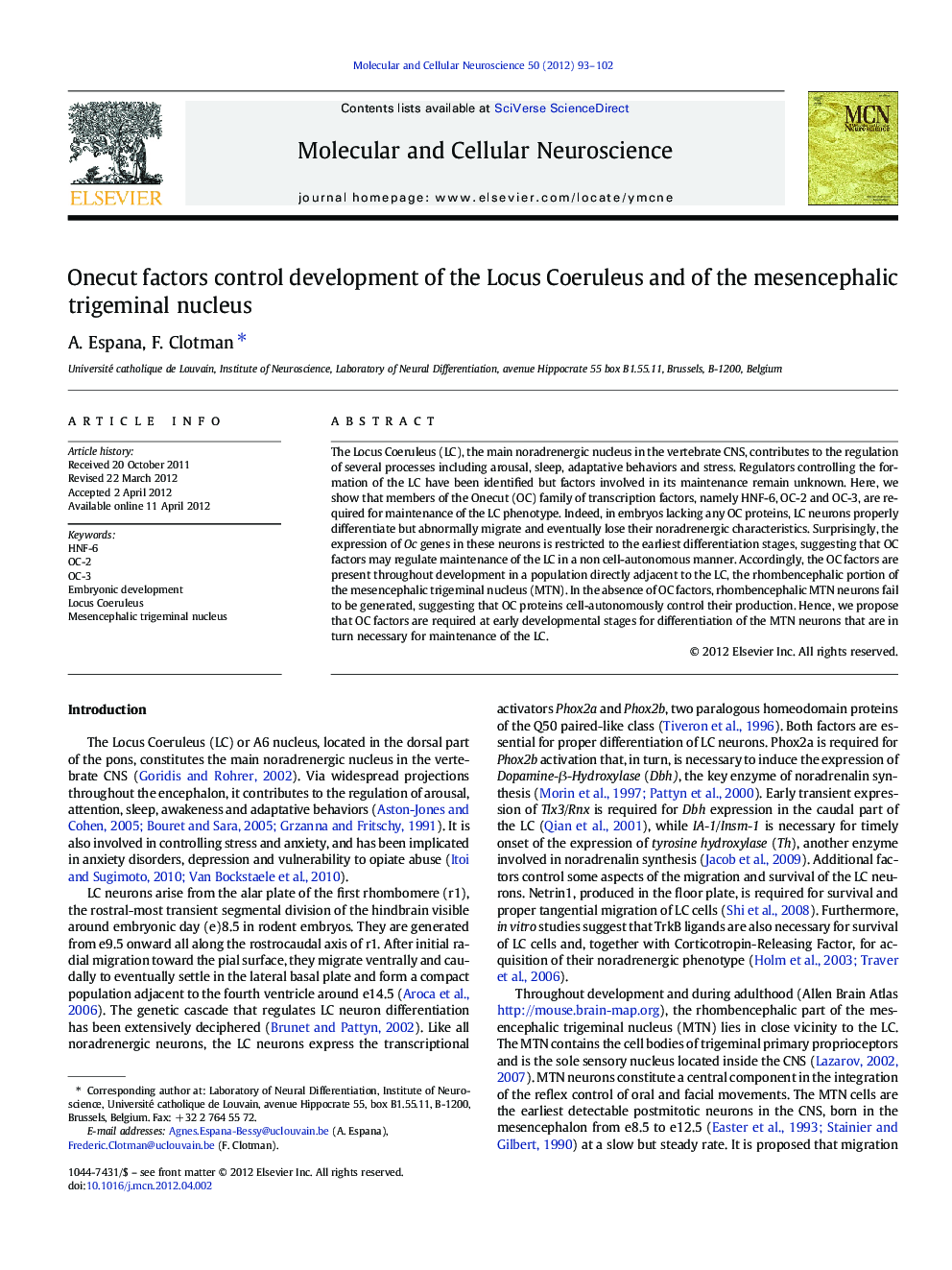| Article ID | Journal | Published Year | Pages | File Type |
|---|---|---|---|---|
| 2198604 | Molecular and Cellular Neuroscience | 2012 | 10 Pages |
The Locus Coeruleus (LC), the main noradrenergic nucleus in the vertebrate CNS, contributes to the regulation of several processes including arousal, sleep, adaptative behaviors and stress. Regulators controlling the formation of the LC have been identified but factors involved in its maintenance remain unknown. Here, we show that members of the Onecut (OC) family of transcription factors, namely HNF-6, OC-2 and OC-3, are required for maintenance of the LC phenotype. Indeed, in embryos lacking any OC proteins, LC neurons properly differentiate but abnormally migrate and eventually lose their noradrenergic characteristics. Surprisingly, the expression of Oc genes in these neurons is restricted to the earliest differentiation stages, suggesting that OC factors may regulate maintenance of the LC in a non cell-autonomous manner. Accordingly, the OC factors are present throughout development in a population directly adjacent to the LC, the rhombencephalic portion of the mesencephalic trigeminal nucleus (MTN). In the absence of OC factors, rhombencephalic MTN neurons fail to be generated, suggesting that OC proteins cell-autonomously control their production. Hence, we propose that OC factors are required at early developmental stages for differentiation of the MTN neurons that are in turn necessary for maintenance of the LC.
